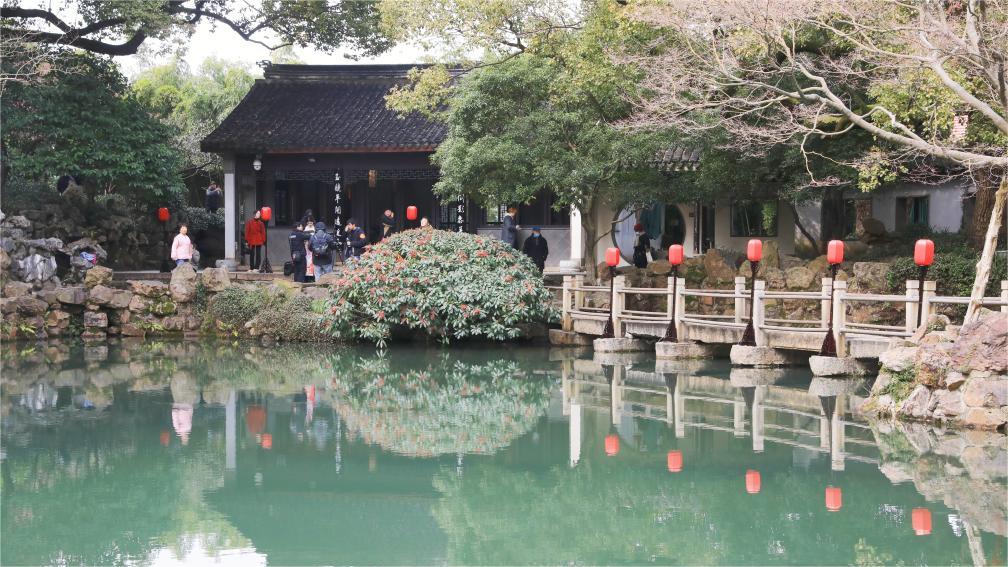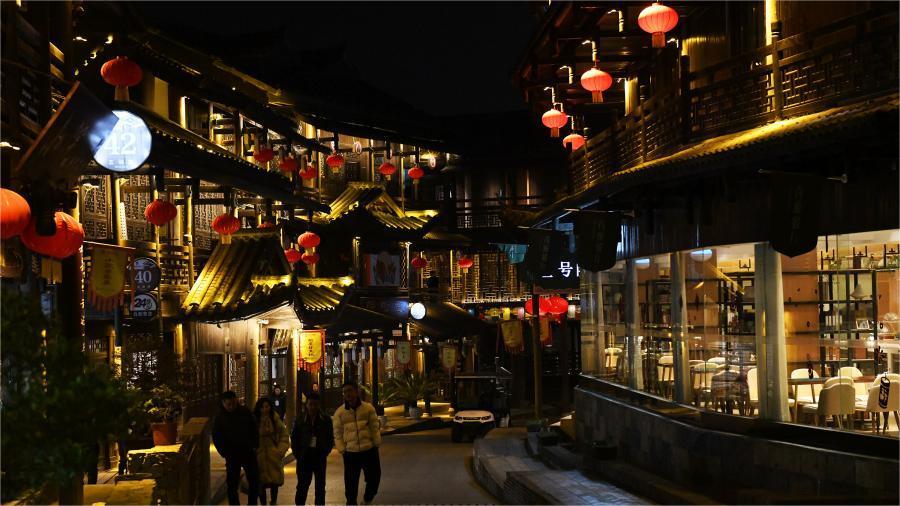How China’s “elderly volunteers” seek meaningful lives and open up new prospects for greying society
Editor’s Note:
Two sessions, our suggestions: What do Chinese people have to say about this year's two sessions?
A key event on China's political calendar, the annual sessions of China's national legislature and top political advisory body, known as the "two sessions," are set to take place in Beijing in March.
The second session of the 14th National People's Congress (NPC) is scheduled to open on March 5, while the second session of the 14th Chinese People's Political Consultative Conference (CPPCC) National Committee is slated to begin on March 4. Thousands of national lawmakers and political advisors, representing the Chinese public, will gather for this significant political meeting, which addresses every aspect of China's development and the wellbeing of its people.
The two sessions are expected to discuss numerous policies and initiatives aimed at improving the lives of the Chinese people.
Are the Chinese satisfied with their lives? What suggestions do they have for this year's two sessions? With these questions in mind, People's Daily Online interviewed locals in Beijing, focusing on topics frequently discussed at the two sessions such as improving living standards, elderly care, and increasing job opportunities for the public.
Let's hear what they have to say!
How China’s “elderly volunteers” seek meaningful lives and open up new prospects for greying society

Liu Jianping, 66 years old, began her day at 7 a.m. as a "silver-haired civil guide" at Beijing's Beitaipingqiao bus station. (Photo by Tian Yi/ People’s Daily Online)
66-year-old Liu Jianping begins her day at 7 a.m. as a "silver-haired civil guide" at Beijing's Beitaipingqiao bus station, donning her red armband and clutching a thermal cup filled with hot tea. The retiree has been a volunteer for the past 16 years, assisting passengers with directions and queries.
With their distinctive lemon-yellow uniforms and endless energy, "silver-haired civil guides" like Liu who work at the Beijing subway and bus terminals are impossible to miss. As "living maps" of Beijing, these retired local seniors are responsible for directing passengers to their destinations, keeping order and queues at bus and metro stations, and assisting physically challenged or old passengers.
In 2001, the Chinese government launched "The Civil Guide" program to improve public services for the 2008 Beijing Summer Olympics. The program's participants were mainly elderly locals. By the end of 2010, the program had developed into a long-term program.
According to a 2021 report by Beijing Daily, over 9,000 seniors, with an average age of over 60, worked at the city's 1,556 bus stops and 321 metro stations, primarily as volunteers, providing volunteer services such as transportation guidance and waste sorting.
After retiring from her job as a bus conductor in 2008, Liu began volunteering at a bus stop close to her home.
"We're not in this for the money; we want to make a difference and not become useless members of society. I don't want to be treated like an old lady; I can still help other people," she told People’s Daily Online.
According to Liu, social care for the elderly in Beijing has been improving in recent years. In her community, elderly people over the age of 80 can request door-to-door services from the neighborhood committee, such as house cleaning. However, her true desire is to see possibilities for retirees to have a positive impact on society and reject ageism.?

Lu Xiufang, 59 years old, has been working as a “civil guide” volunteer for six years in Beijing. (Photo by Tian Yi/ People’s Daily Online)
Echoing Liu, 59-year-old Lu Xiufang, who also works as a “silver-haired civil guide”, told People’s Daily Online that such volunteer opportunities have made her post-retirement life more colourful and meaningful.
Lu Xiufang is now thinking about establishing her own business in China’s booming silver economy sector.
“Working as a volunteer made my life more meaningful. I used to work in the home service industry, and I have always wanted to open a community restaurant for the elderly, providing them food delivery services. I’ve discussed this idea with my kids, and they all support my dream,” said Lu.
According to data released by China’s National Bureau of Statistics in January, China's elderly population — those aged 60 or older — grew to 297 million by the end of last year, making up 21.1 percent of the total population, compared with 19.8 percent by late 2022.
On Jan 15, the State Council unveiled a series of measures to promote the "silver economy", calling on the public and private sectors to make investments and innovations in products and services for seniors.
The aging population and the wellbeing of the elderly has always been a hot topic during each year’s Two Sessions. During last year’s Two Sessions, the State Council said that some functions of the National Health Commission would be transferred to the Ministry of Civil Affairs. It said the ministry would be put in charge of drafting policies and measures to address the aging issue and coordinating their implementation.
For this year's Two Sessions, both Liu and Lu proposed that the government pay more attention to elderly people's lives after retirement, giving them more opportunities to maintain a productive social life.
"I'm only 66 and I'm still young. I think we elderly can still make contributions to our nation," Liu said.
Photos
Copyright © 2024 People's Daily Online. All Rights Reserved.









